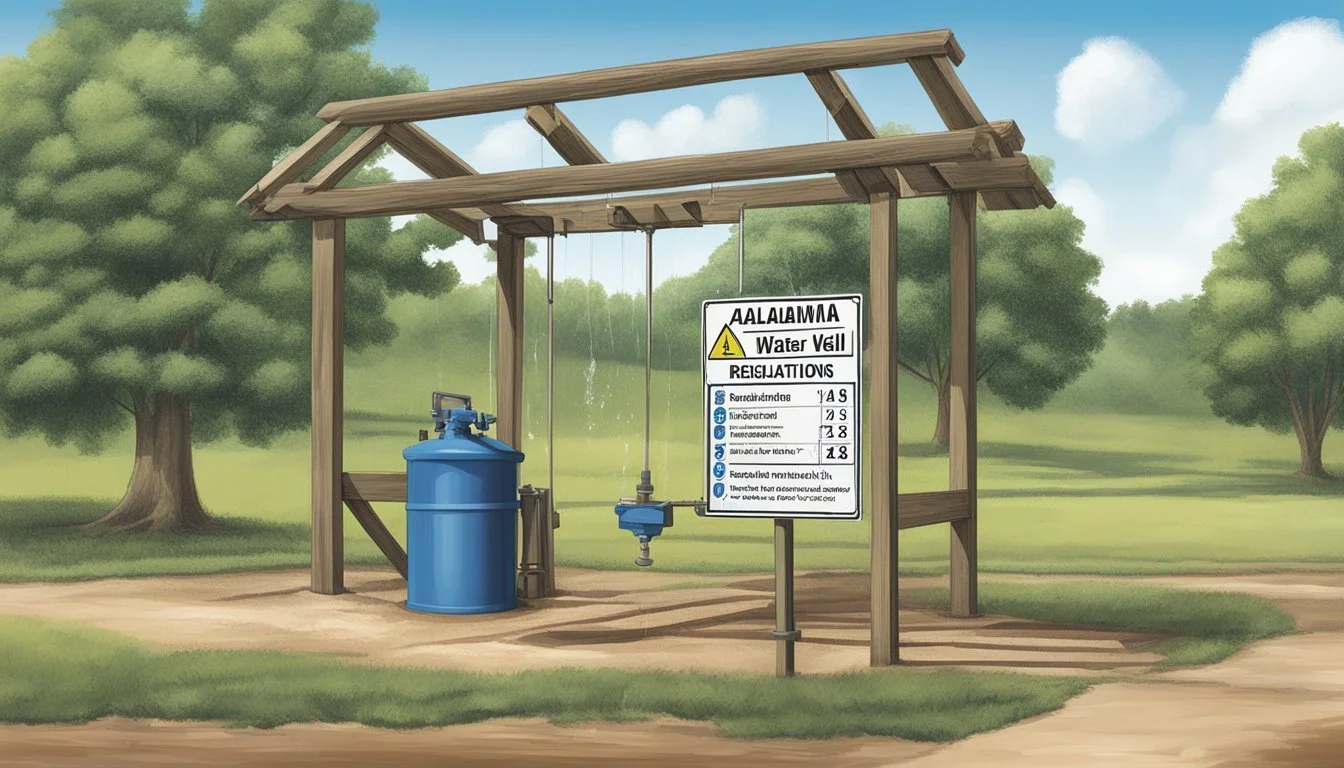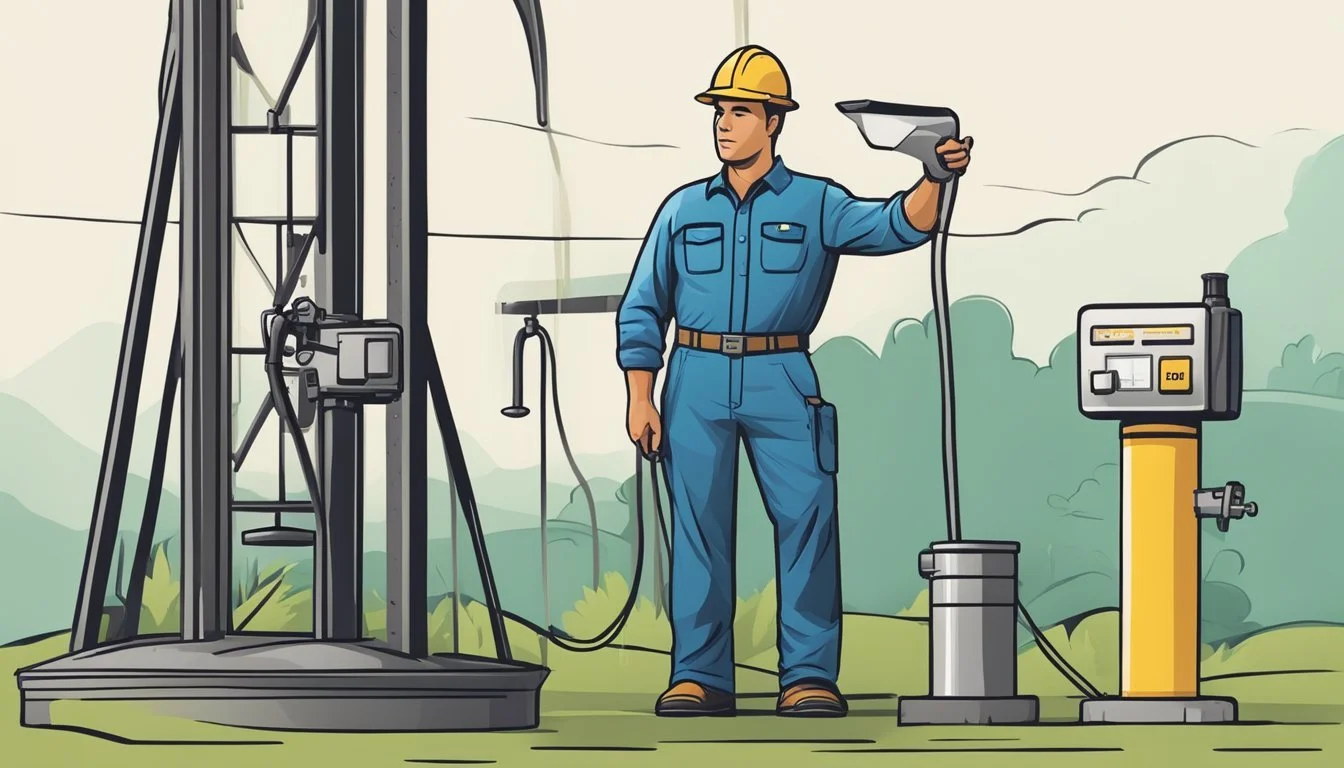Alabama Water Well Regulations
Understanding Compliance for Safe Water Access
Access to clean water is a fundamental necessity, and in Alabama, regulation of water wells is taken seriously to ensure the health and safety of its residents. Groundwater, sourced from wells, serves as the main supply of drinking water for a significant portion of Alabama's population. The Alabama Department of Public Health (ADPH) highlights that nearly 44 percent of the state's residents rely on groundwater, with about 800,000 people depending on private water supplies. The state has put forth regulations to manage this crucial resource, particularly focusing on private wells which, unlike public water systems, do not fall under the Environmental Protection Agency’s regulation.
The Alabama Department of Environmental Management (ADEM) is entrusted with the promulgation and enforcement of water well standards. These regulations are designed to protect public health and to ensure that a clean, sanitary, and healthful water supply is available. The standards apply to various aspects of water well construction, operation, and maintenance, making certain that wells are constructed and repaired by licensed professionals to prevent contamination of the water supply.
Alabama’s water well regulations are detailed in the state's codes and administrative rules, providing clear definitions, applicability, and rules for well drilling and repair. The legal framework requires well drillers to comply with specific standards, from the casing materials used to the distance a well should be from potential contaminants. ADEM's oversight and these well-established standards work together to safeguard private and public water sources, reflecting Alabama's commitment to protecting one of its most vital natural resources.
Legal Framework
Alabama maintains a robust legal framework to regulate water well construction, ensuring that groundwater resources are protected and that the water supply remains safe and sustainable.
Alabama Department of Environmental Management Authority
The Alabama Department of Environmental Management (ADEM) is vested with the authority to enforce regulations related to water wells within the state. This includes the implementation of standards for constructing, maintaining, and abandoning water wells to protect aquifers and water users. They are responsible for overseeing licensing requirements for well drillers and certification of their qualifications.
Relevant Water Legislation
In Alabama, specific legislation dictates the procedures for the construction and oversight of water wells. This legislative framework outlines comprehensive standards for water well construction, which aim to prevent water contamination and to ensure public safety. It encompasses a variety of aspects, from site selection and design to the materials used and the actual process of drilling, all overseen by licensed professionals.
Well Construction and Standards
Regulatory compliance and safety are paramount in the construction of water wells in Alabama. Precise standards ensure the protection of water resources and public health.
Well Construction Requirements
For any water well construction in Alabama, strict guidelines must be followed. They must meet criteria set out by the Alabama Department of Environmental Management (ADEM), which include obtaining necessary permits and ensuring that the location and design of the well will protect water quality. Prior construction, well drillers are required to be licensed and to adhere to specified drilling practices.
Material and Equipment Standards
The materials and equipment used in well construction are detailed in ADEM's Design Guidance. This covers the acceptable types of construction materials and the equipment utilized during the drilling process, such as screens, pumps, and treatment systems. These standards are in place to avoid contamination and to ascertain the long-term reliability of the water wells.
Water Well Construction Standards
Water well construction standards encompass the technical specifications that each well must adhere to. Alabama has state-specific Water Well Standards which dictate the supervision of drilling by a licensed driller, the application process for drillers' licenses, as well as the drilling, repair, and testing requirements for water wells. Each aspect is regulated to ensure sustainable water extraction and distributive equitability.
Water Quality and Protection
In Alabama, the approach to water quality and protection focuses on maintaining high standards for groundwater, implementing robust prevention strategies against contamination, and actively managing private well initiatives to ensure safe drinking water for all residents.
Groundwater Quality Standards
The Alabama Department of Environmental Management (ADEM) sets the regulatory framework for groundwater quality, including specific criteria meant to protect designated uses. Groundwater standards are instrumental for ensuring that drinking water sources remain uncontaminated and safe for consumption. More details on these standards can be found on the ADEM Water Quality Program webpage.
Contamination Prevention Strategies
Preventive measures are key in safeguarding Alabama's water resources. This includes the establishment of environmental covenants under the Alabama Uniform Environmental Covenants Act, which is detailed within state law. Strategies also involve monitoring and regulating potential sources of pollution to prevent contaminants from entering the water supply. For specific regulations, one can refer to the Alabama Department of Environmental Management Regulations.
Private Well Program Initiatives
For the private wells that serve as a drinking water source for a significant portion of Alabama's population, the state has developed initiatives to oversee water quality. These initiatives provide guidelines for the construction, maintenance, and testing of private wells, ensuring that they meet healthful standards. Information pertaining to these guidelines and the importance of a safe groundwater supply can be located on the Well Water page of the Alabama Department of Public Health.
Certification and Licensing
In Alabama, robust measures are in place to ensure that water supply systems are managed by qualified professionals. This section discusses the requirements and processes for the certification of operators and the licensing of construction professionals who work on water wells.
Operator Certification
The certification process for water system operators in Alabama is designed to maintain high standards of practice in the industry. Every operator must adhere to the regulations set forth in Division 335-10-1. Operators are responsible for managing water systems effectively, which includes providing safe and clean water in accordance with public health mandates. Renewal of certification and staying current with the latest operator certification regulations are mandatory aspects of maintaining a certified status.
Licensing of Construction Professionals
When it comes to the construction of water wells, Alabama implements strict licensing requirements for those who drill. Since May 1988, the Well Driller Licensing Program sets forth standards to ensure water wells are constructed in a manner that provides a pure, sanitary, and healthful water supply. Professionals seeking to construct or repair wells must have a valid well driller's license, which signifies their compliance with established standards of practice and acknowledges their competency in safeguarding the state’s water resources.
Regulation Compliance and Violations
In Alabama, the regulatory landscape ensures public water system integrity through continual compliance monitoring and establishing clear repercussions for those entities that fail to adhere to the established water well standards. These infractions may lead to penalties that are meant to enforce adherence and safeguard public health.
Compliance Monitoring
The Alabama Department of Environmental Management (ADEM) strictly oversees the adherence to water well regulations by executing periodic inspections and reviews. Compliance is assessed by checking against the state's water well standards, which detail the technical and operational criteria that must be met by a public water system. This ongoing process includes the evaluation of the system's records and the physical infrastructure to guarantee the delivery of safe and clean water.
Penalties for Non-Compliance
When a public water system is found non-compliant, the ADEM enforces penalties which may include fines and mandatory corrective actions. The magnitude of these penalties is often proportional to the gravity of the violation and its potential impact on public health. Repeated offenses may lead to escalated enforcement actions, which could even encompass judicial penalties or operational restrictions on the water system involved. Public awareness is a critical aspect of the enforcement process, and any violations found during inspections are documented and made accessible for public review.
Public Water Systems
Public Water Systems in Alabama are strictly regulated entities, ensuring the provision of safe and potable water in accordance with state and federal guidelines. They are managed under the purview of entities like the Alabama Department of Environmental Management's Water Division and the Drinking Water Branch.
Public Water System Classifications
In Alabama, public water systems are classified based on the number of people they serve and the source of water. A system is considered public if it provides potable water to at least 15 service connections or serves at least 25 residents for 60 or more days a year. The classifications can range from community systems serving residential customers to non-community systems, which include transient systems—like gas stations or campgrounds—and non-transient systems such as schools or factories.
Oversight of Public Water Systems
The oversight of these systems is a critical function carried out by the Drinking Water Branch, which regulates the state's public water systems. Compliance with the Safe Drinking Water Act is mandatory, and regulations pertain to the purity, potability, and physical quality of the water. The Alabama Department of Environmental Management Water Division enforces these rules through rigorous testing and regular reporting, ensuring public health and well-being remain at the forefront of their operations.
Resources and Further Information
For individuals seeking reliable and detailed information regarding water well regulations and resources in Alabama, various entities provide comprehensive assistance and insights. Key sources include the Geological Survey of Alabama and the Water Division, each offering specific services and support for well owners, contractors, and the general public.
Geological Survey of Alabama Resources
The Geological Survey of Alabama provides an array of resources to explore and understand groundwater and well-related information in Alabama. Their contributions are crucial for well owners and contractors who need to stay informed about the geological aspects of well water supply.
Reports and Publications: Access to detailed hydrological studies and maps.
Data and Research: Information on water resources and geological characteristics of different regions.
For direct access to these resources, individuals can visit the Well Water section on their website.
Water Division Contacts and Support
The Water Division, operating under the Alabama Department of Environmental Management, is the primary contact for regulatory guidance and support concerning water wells.
Licensing and Certification: Protocols for obtaining necessary water and water well construction standards.
Regulatory Guidance: Up-to-date legislation information, such as amendments to water regulations.
Supporting documents and detailed regulatory information can be reviewed in the Water Rules document, which outlines the standards and practices governed by state law.
Frequently Asked Questions
When addressing water well regulations in Alabama, property owners must consider state-specific rules and guidelines. The following frequently asked questions provide clear insights into common regulatory aspects.
How close to my property line am I allowed to place a water well in Alabama?
In Alabama, the placement of a water well relative to property lines must comply with specific local regulations, which generally require wells to be situated a safe distance away from septic tanks and property boundaries to prevent contamination and disputes.
What are the steps to have well water tested in the state of Alabama?
To ensure water safety, well owners should periodically test their water. In Alabama, one can contact the Alabama Department of Public Health for guidelines on collecting water samples and a list of certified laboratories for testing well water for contaminants.
Is it permissible to extract water from a creek for well purposes in Alabama?
Extraction of water from a creek or any surface water in Alabama for well purposes may require a permit or be subject to regulations designed to protect water resources. Interested parties should reach out to the Alabama Department of Environmental Management for specific guidance.
Where can I find well records and water well inventories for Alabama?
The Alabama Department of Environmental Management maintains well records and water well inventories, which include historical data and can aid in locating, constructing, and closing wells across the state.
What is the process for obtaining a free water well in Alabama?
While obtaining a free water well is not standard, residents in Alabama may explore programs for financial assistance or grants geared towards rural areas or communities in need. One such source could be the NRCS or local Alabama agricultural extensions.
At what depth can the water table be found on average in Alabama?
The depth of the water table in Alabama can vary greatly depending on specific geographical locations and the underlying aquifers. For details on average depths and related information, consulting geological surveys or the Alabama Cooperative Extension System is recommended.









